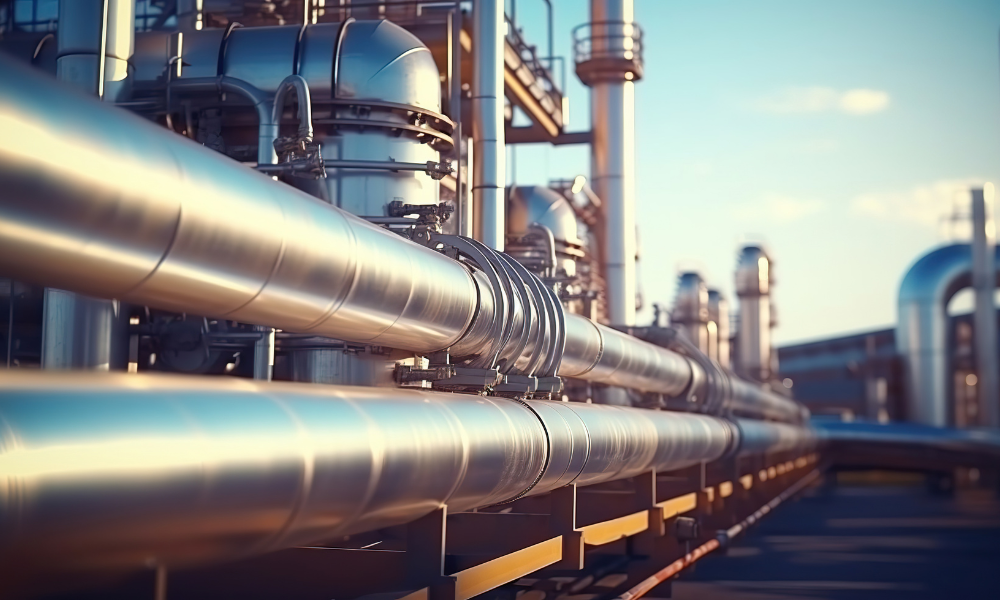Canadian oil boom sparks Enbridge's pipeline talks and record profits, with capacity tight in 2024

Enbridge Inc., headquartered in Calgary, announced it has begun talks with customers to expand its Mainline pipeline network to accommodate increased Canadian oil output, according to BNN Bloomberg.
Colin Gruending, president of liquids pipelines at Enbridge, noted on a recent analyst call, “We have commenced commercial discussions with the industry. We’ve spent the quarter engineering the expansion.”
Though Enbridge has not yet released a cost estimate, Gruending mentioned that the expanded capacity could be operational as early as 2026 or 2027.
Gruending emphasized that the planned expansion would be a modest addition along the Mainline's existing pipeline network.
“It’s really more of an optimization, not a retrenching or a new path. It’s in the (existing) right-of-way ... it’s very executable,” he explained.
With a history of multiple expansions over 75 years, the Mainline system remains North America’s largest, transporting crude oil from Western Canada to markets in Eastern Canada and the US Midwest.
In recent years, some industry observers had anticipated a decrease in Mainline volumes following the completion of the Trans Mountain pipeline expansion, which opened new export routes to Canada’s West Coast.
However, Enbridge projects that its full-year 2024 volume on the Mainline will exceed 3 million barrels per day, a figure similar to 2023’s daily average of 3.1 million barrels, even after Trans Mountain’s startup.
Canadian oil production and exports continue to reach new heights. In 2023, Canadian crude production hit a record high of 5.1 million barrels per day as producers ramped up operations in anticipation of Trans Mountain’s opening.
According to Statistics Canada, crude exports also hit a record, averaging 4 million barrels per day that year.
Additionally, recent data from the US Energy Information Administration shows that Canadian crude exports to the US reached a peak of 4.3 million barrels per day in July 2024, following the Trans Mountain expansion.
The heightened production levels have resulted in Enbridge's Mainline experiencing apportionment—an industry term indicating demand for uncontracted pipeline space exceeds available capacity—during July, August, and again in November.
Gruending suggested that while apportionment might not occur every month, seasonal demand is likely to keep capacity tight. “I don’t know if I could see apportionment every month going forward here, but seasonally, I think you’re going to see a lot of demand for the Mainline,” he remarked.
Many analysts have suggested that Canada’s current oil boom could soon renew concerns over pipeline capacity constraints.
Before Trans Mountain’s recent expansion, Canadian oil producers faced significant export bottlenecks, often resulting in Canadian heavy crude being priced at a steep discount to the US benchmark.
Nonetheless, Imperial Oil’s CEO Brad Corson expressed optimism about the current capacity levels.
“We see that there are several years of running room based on existing capacity, but we also feel like there will likely be additional capacity that will be achieved both in the Enbridge system and in the (Trans Mountain) system as those operators look for further debottlenecking,” Corson said.
He added that current pipeline capacity allows the industry to plan for growth without immediate concerns over export limitations.
Beyond the Mainline, Enbridge is also evaluating possible expansions on its smaller regional pipelines that support Alberta’s oilsands. Gruending highlighted the economic importance of maintaining adequate pipeline capacity for the Western Canadian Sedimentary Basin to avoid constraints.
Earlier this year, Enbridge reached a new tolling framework agreement with its Mainline customers, approved by the Canada Energy Regulator after a year and a half of discussions. Tolls represent the fees oil companies pay to ship on a pipeline.
Enbridge’s Mainline tolls are now set, but rates for Trans Mountain’s expanded capacity remain in negotiation, with oil companies challenging proposed toll increases needed to cover cost overruns from the project’s construction.
In its latest financial report, Enbridge recorded a third-quarter profit attributable to common shareholders of $1.29bn, or 59 cents per share, up from $532m, or 26 cents per share, in the same quarter of the previous year.
The quarter included a net unrealized derivative fair value gain of $112m, compared to a loss of $782m and a $124m litigation provision in the same period last year.
On an adjusted basis, Enbridge posted earnings of 55 cents per share, slightly under analysts’ expectations of 56 cents, as per LSEG Data & Analytics.



